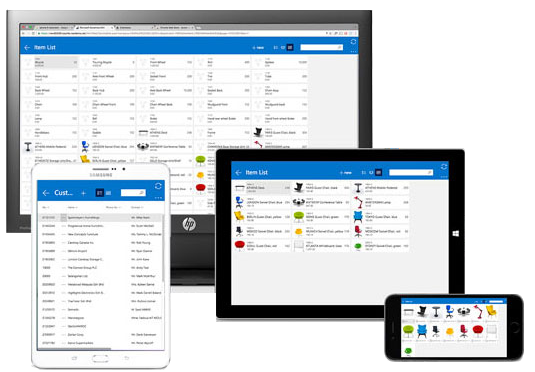
Myth #1: You don’t own your data
This is not true – at least, if you choose the right provider. When selecting a cloud provider, do your homework, and make sure that even though they store the data for you, you are the only owner of all your information. Pick a trustworthy vendor that respects your privacy, and won’t mine your data for advertisement. Also remember to look for the important option to take your data with you if you decide to terminate the contract.Myth #2: Your data is open to anyone
Again, selecting the right vendor is the key to dispelling this fear. Make sure to choose a cloud provider that offers secure data encryption, which is probably the best way to ensure that all your information is protected. When the data is encrypted, only authorized parties have access to the actual text or information hidden behind the encryption. For greater security, trustworthy clouds like Microsoft’s Azure encrypt the data both when it’s in transit (as the data flows over the Internet) and when it’s at rest (when the information is physically stored in the server).Myth #3: There is a higher risk of malware
The fear of becoming the object of attacks is still keeping a few people off the cloud – when this concern should, rather, push them towards cloud-based services! Malware infections and ransomware on systems run on-premises are, unfortunately, quite common and difficult to prevent, especially if you don’t have a good IT team. Some retailers, who do not have the resources for 24/7 technical help, simply use a firewall or an antivirus to protect their locally hosted systems. Really? Yes. Hackers can have easy access to the data when it is hosted on premises and poorly protected. Unless they are willing to invest in costly expert help, there is not much small retailers can do about this. In the cloud environment, even small retailers with limited funds can leverage the investments big corporations make to fight against any kind of threat to the data they are storing. Big cloud providers use distributed denial-of-service (DDoS) attack prevention and intrusion detection tools to protect the servers from online threats, and perform continuous regular penetration testing to help verify safety controls. These companies have the capability and means to keep up with changing threats, and constantly improve their defense mechanisms to keep all your data safe. And you can trust that they won’t let anything happen to your data, as they are not only protecting your information, but also their reputation!Myth #4: No-one is protecting the data from theft or accidents
Once more, this is a much bigger risk with locally hosted server, as this method requires you to make sure that you take the right measures to avoid the risk of theft. This can be difficult to implement and expensive. Do you have an alarm system in place? Will you need to hire a security service? Imagine that your data storing server or computer is physically stolen (it happens!). You won’t only lose all your information and put your customers’ personal data at risk; you also risk having to close down your business until a new system is put back on place. Accidents are also a very real threat when you physically store your data on-site. For small businesses in particular, it can be very difficult to control all the factors that could affect, and ultimately damage, a server, such as temperature or power volatility. Finally, physical damage to a piece of hardware can just happen. (Have you ever spilled a cup of coffee on your keyboard? I know I have). Are you sure you can prevent all of these possibilities? Cloud providers host your data in off-site servers, which are kept safely away from employees, and are well guarded and monitored against intruders. Embracing the cloud might be scary, but it often pays off to be brave, and take part to the change. Just spend some time doing your research, don’t jump into the first option you find online and always check the cloud providers’ security certifications.

